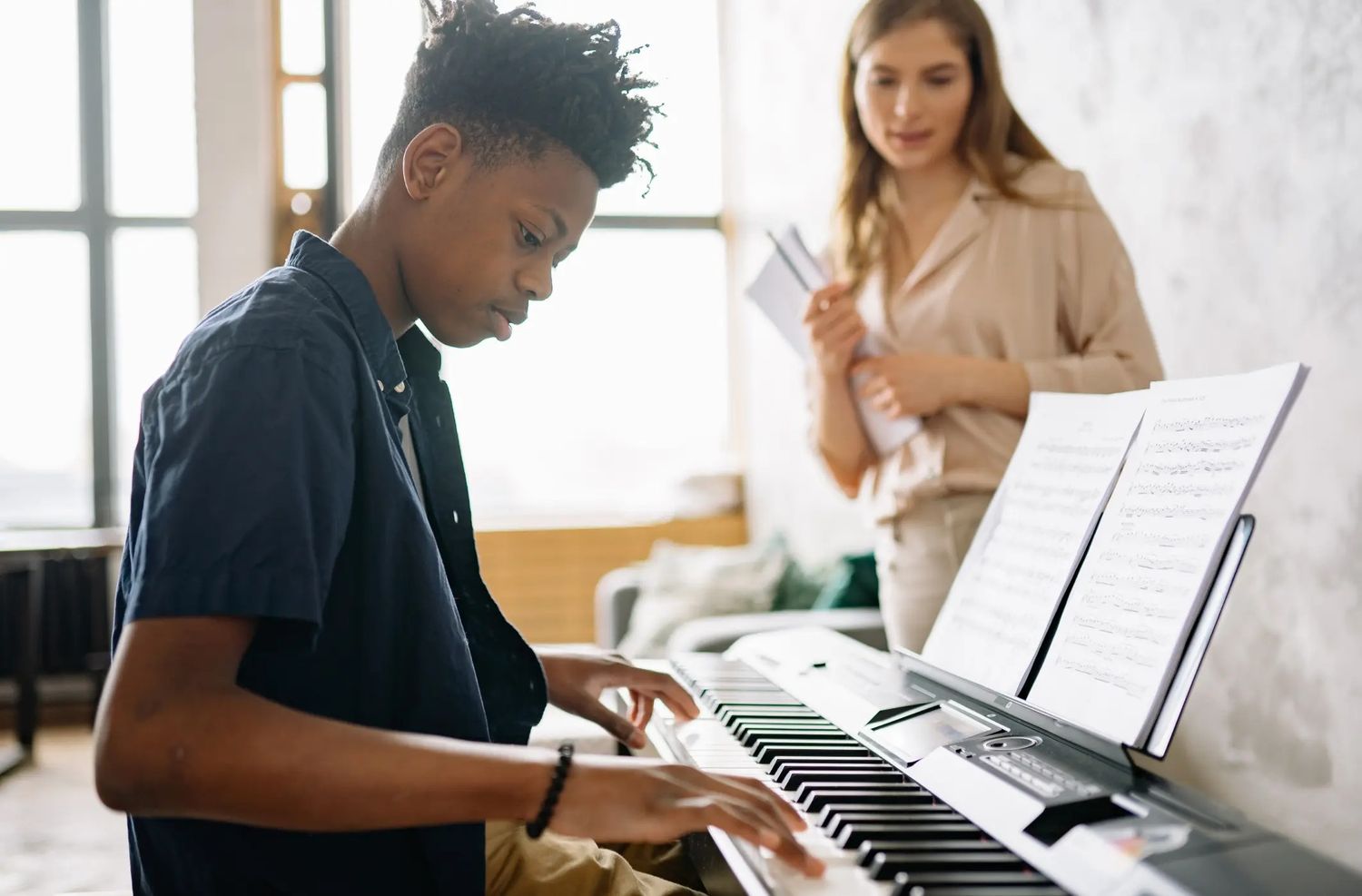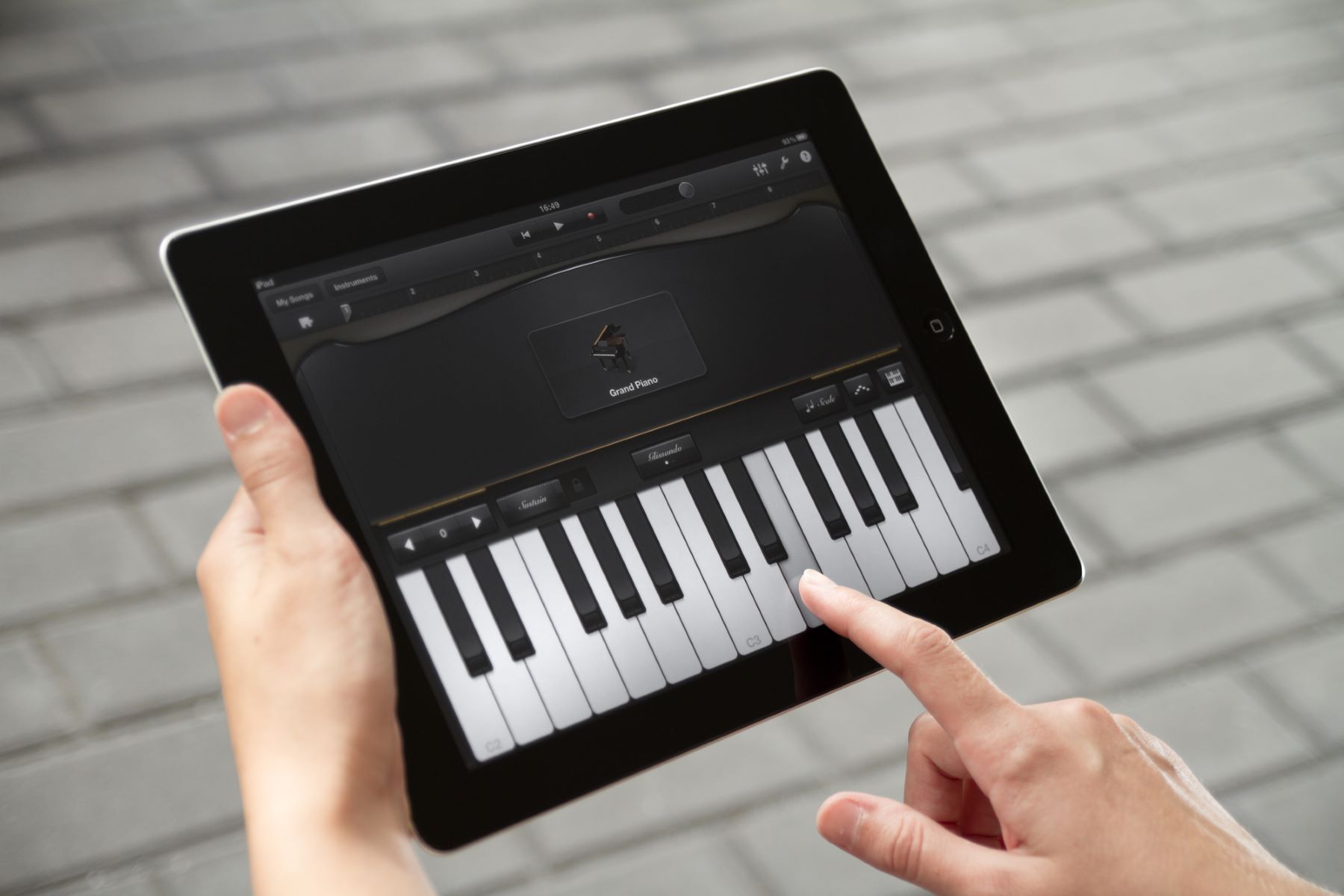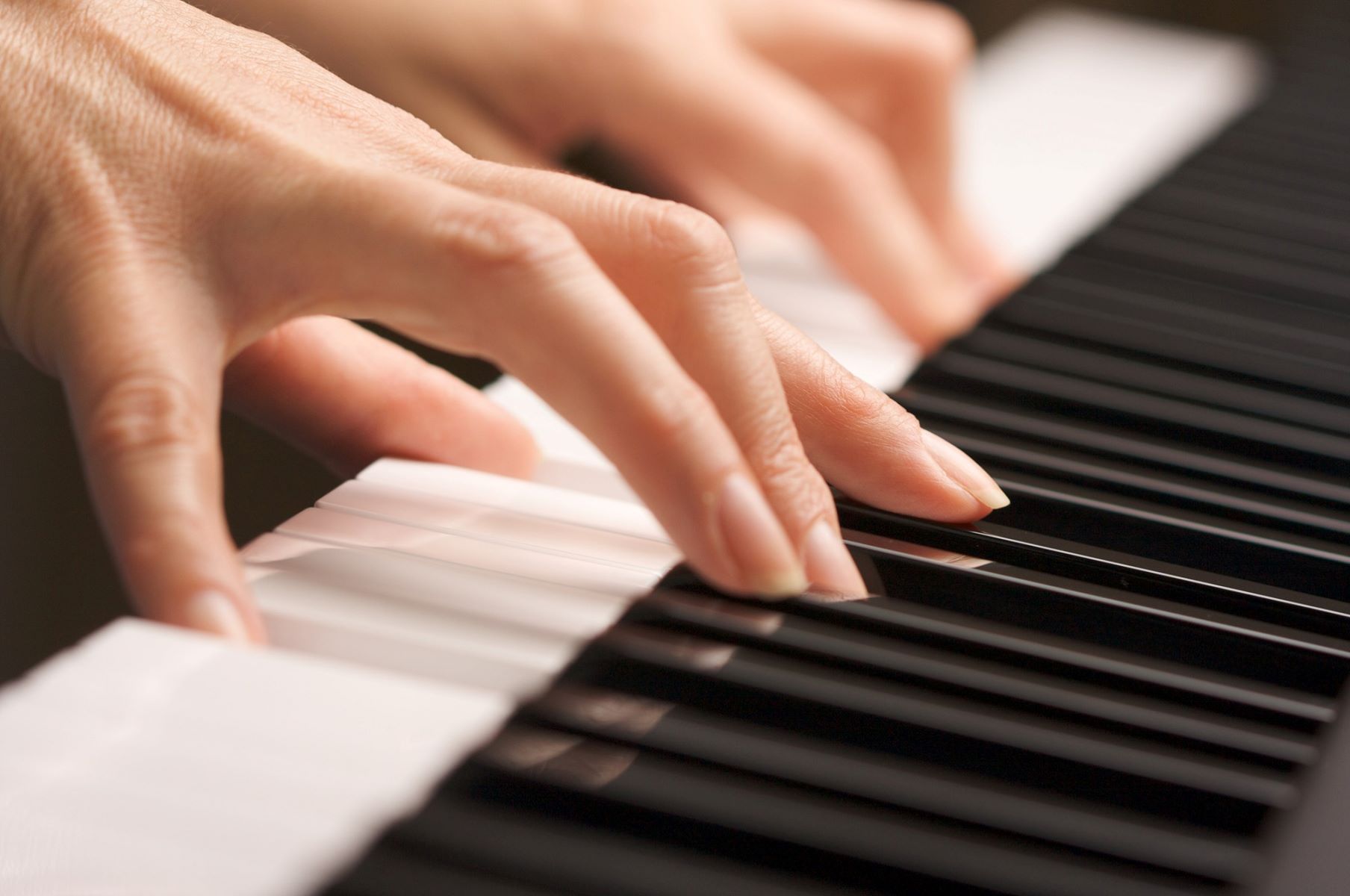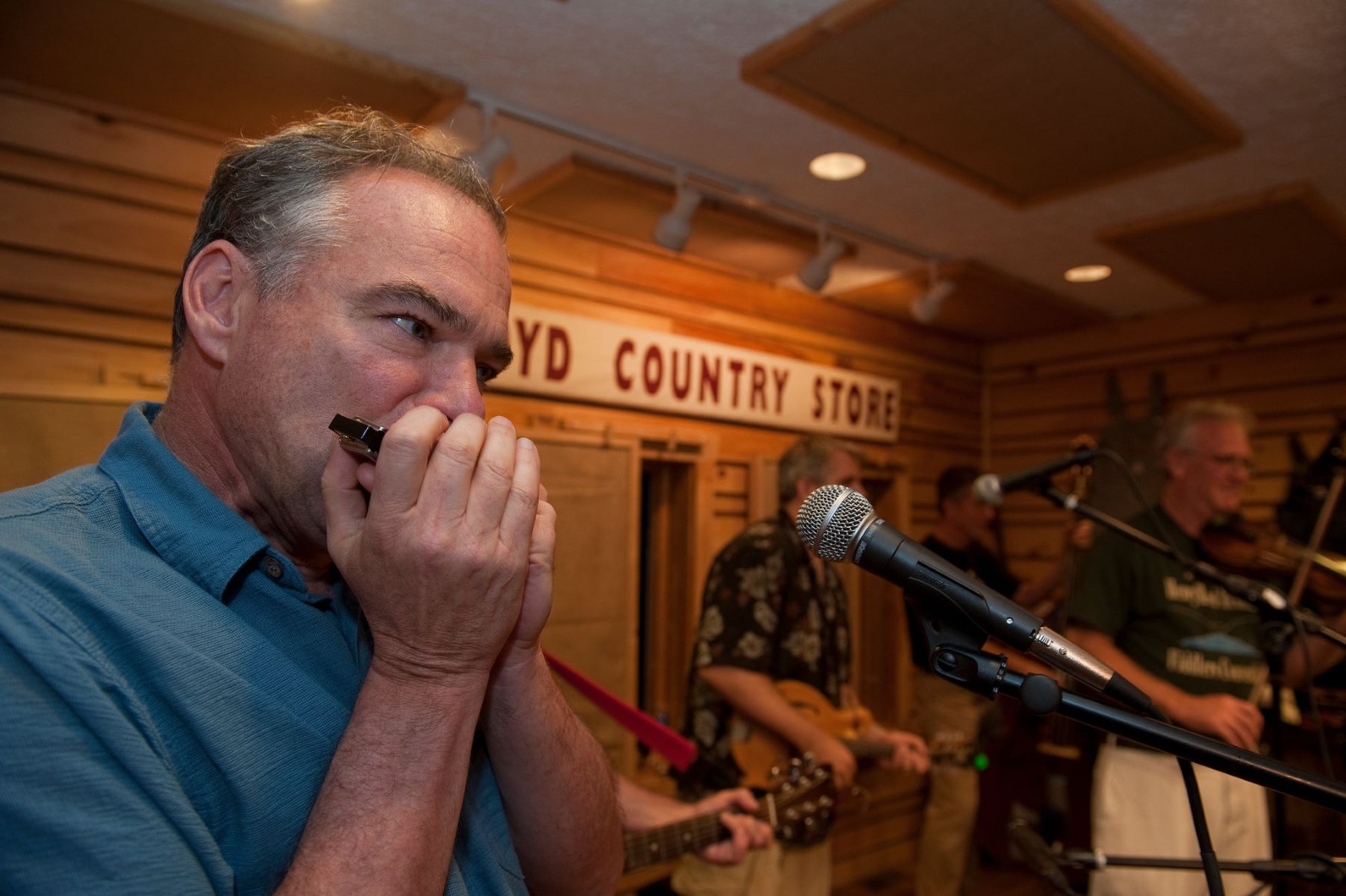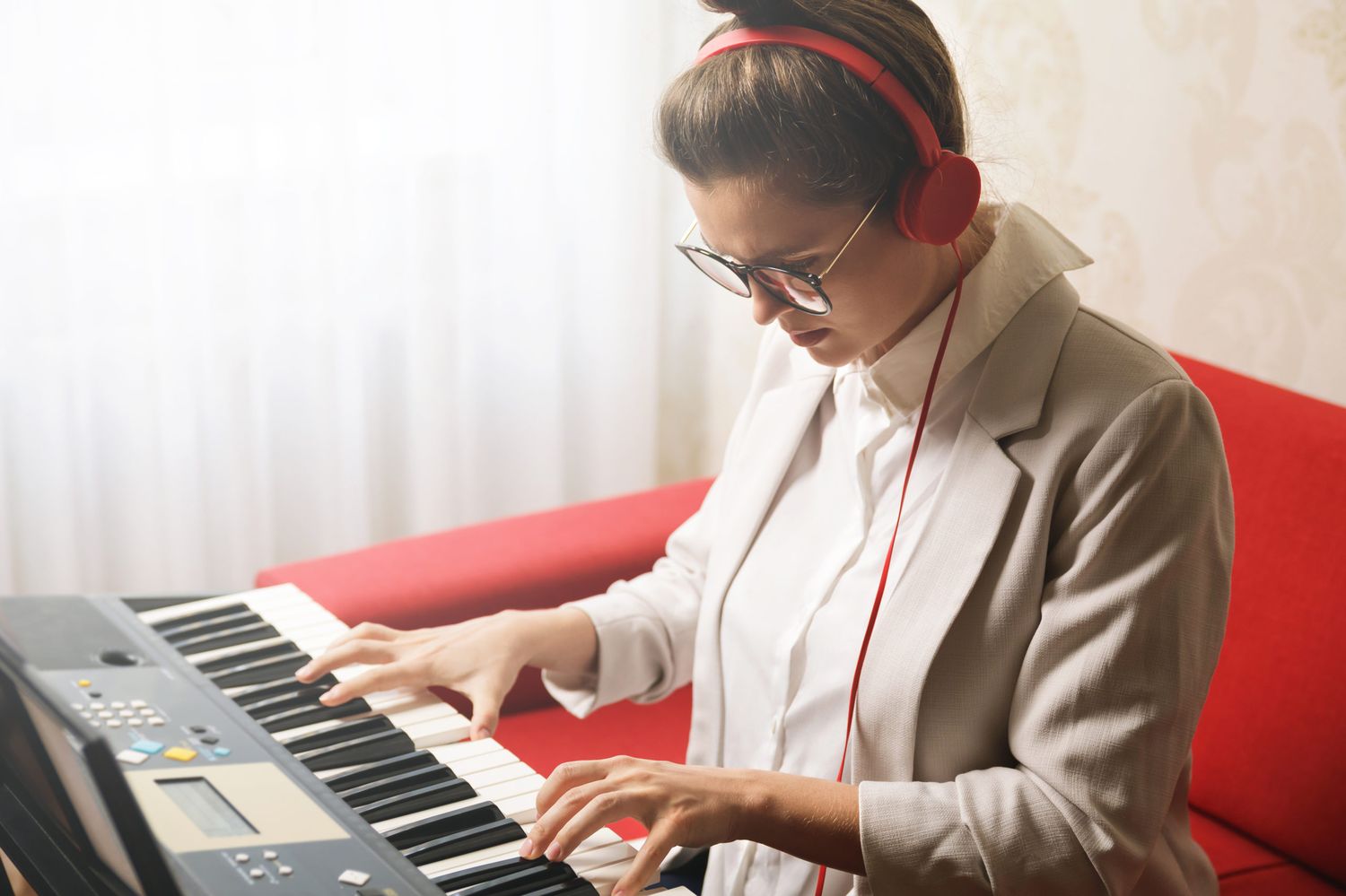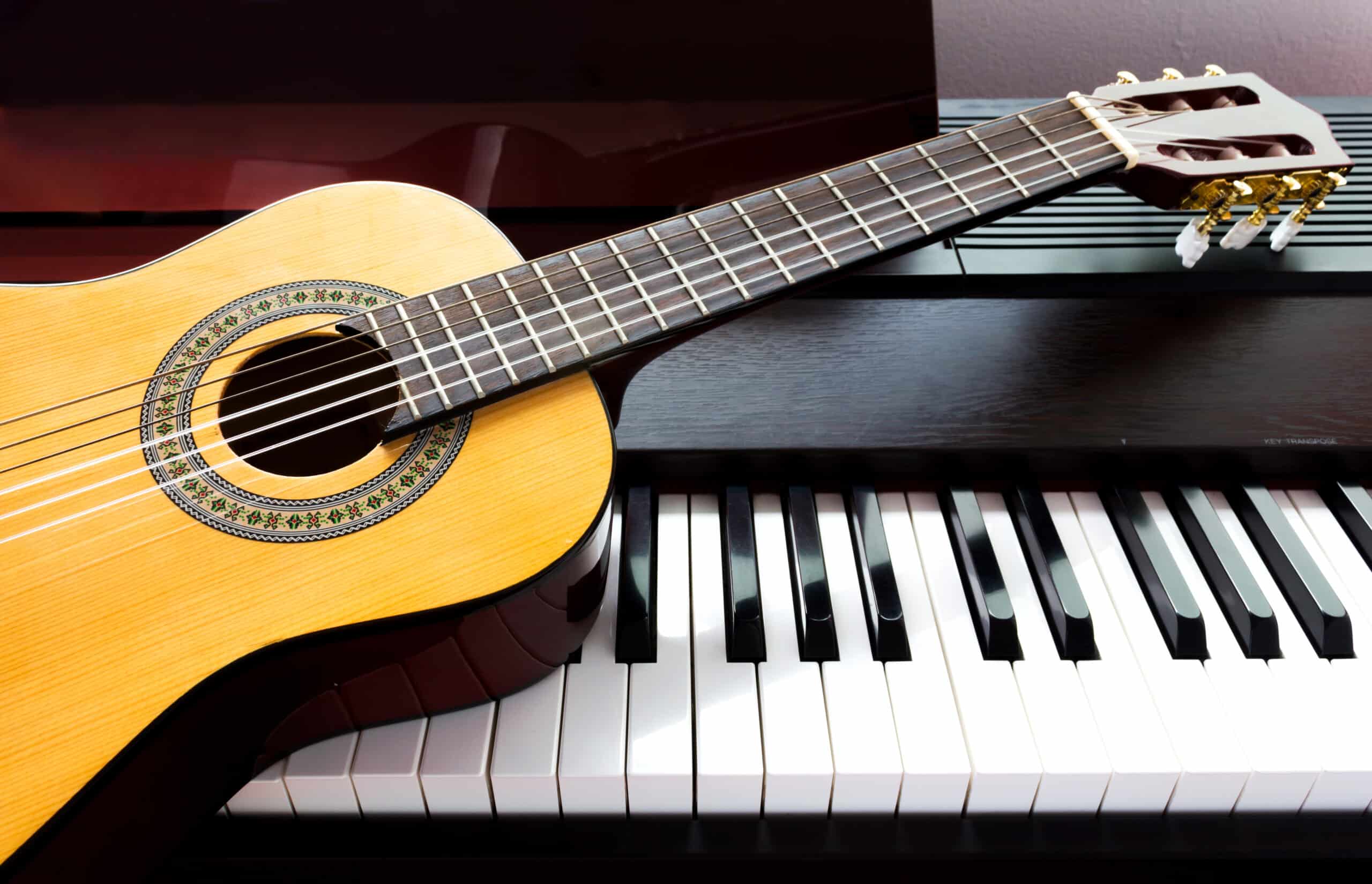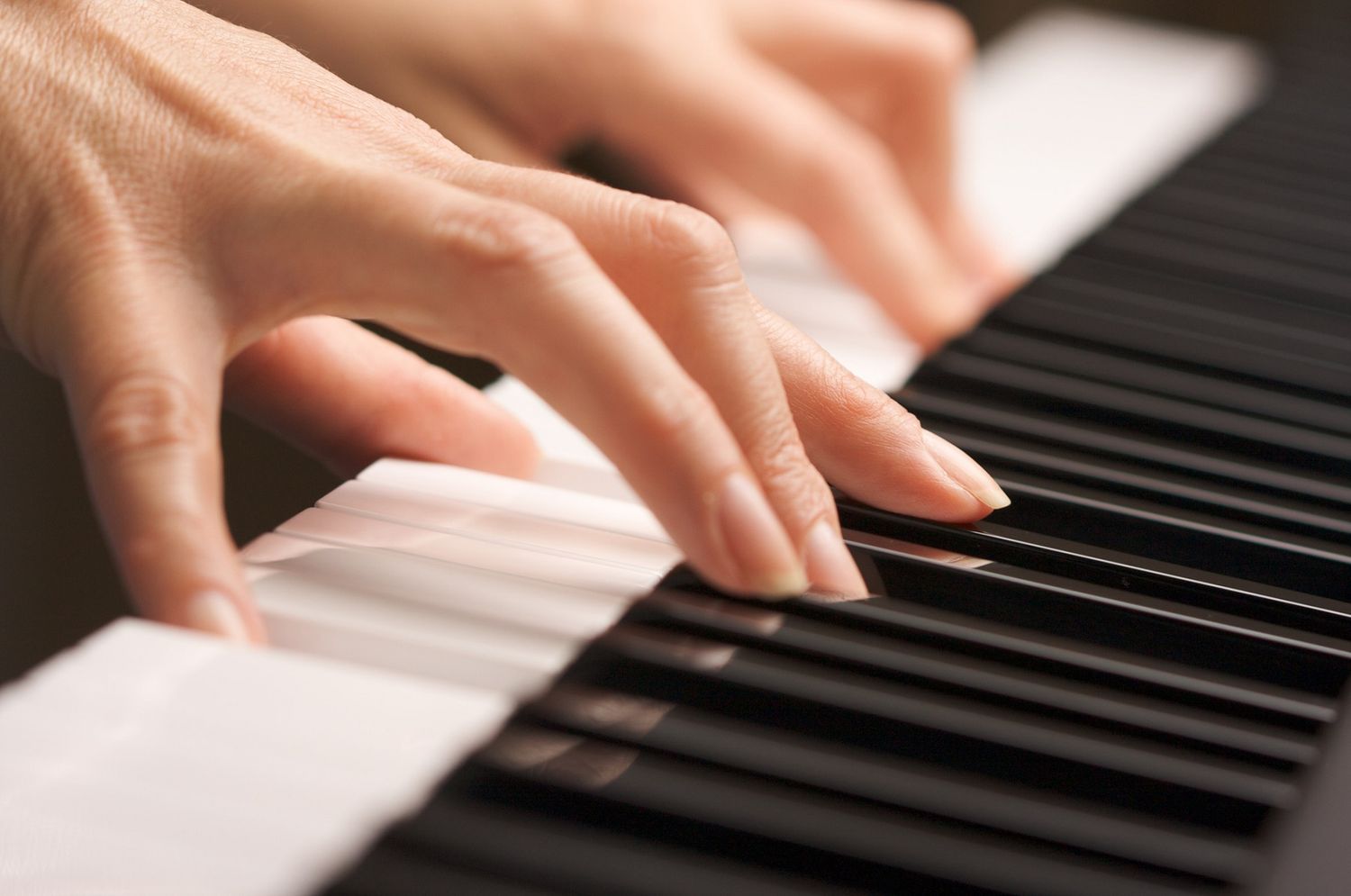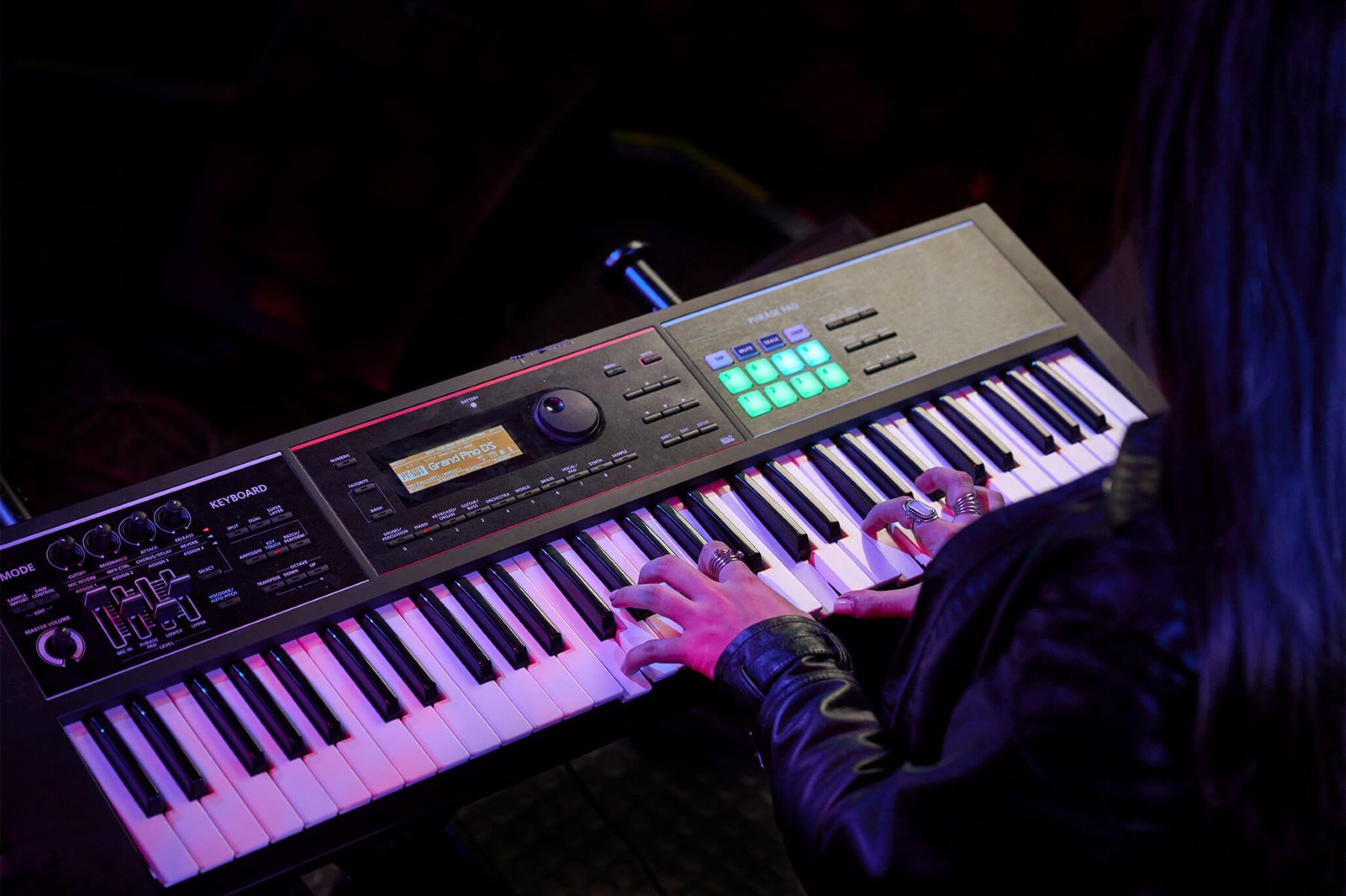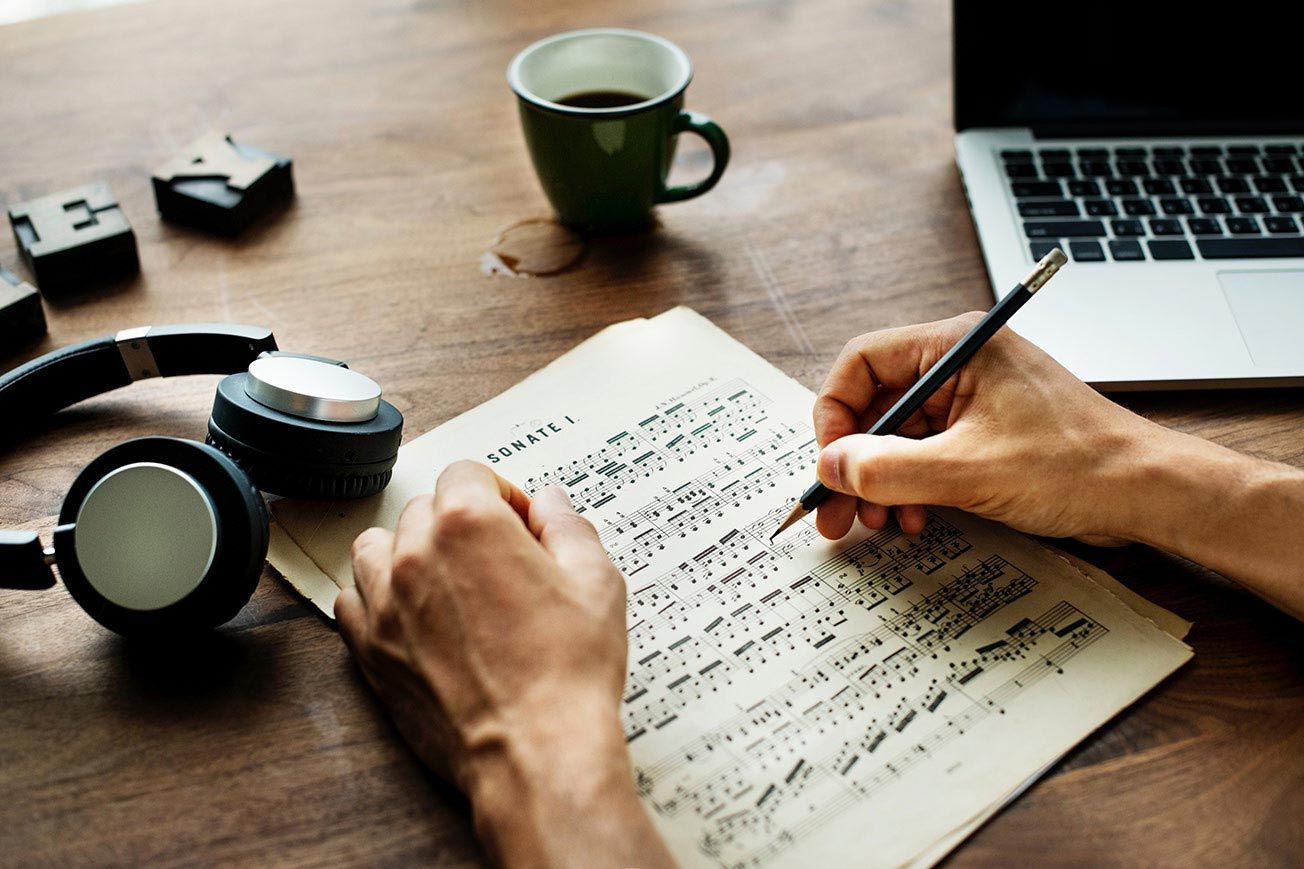Home>Instruments>Piano>Why Learn To Play The Piano
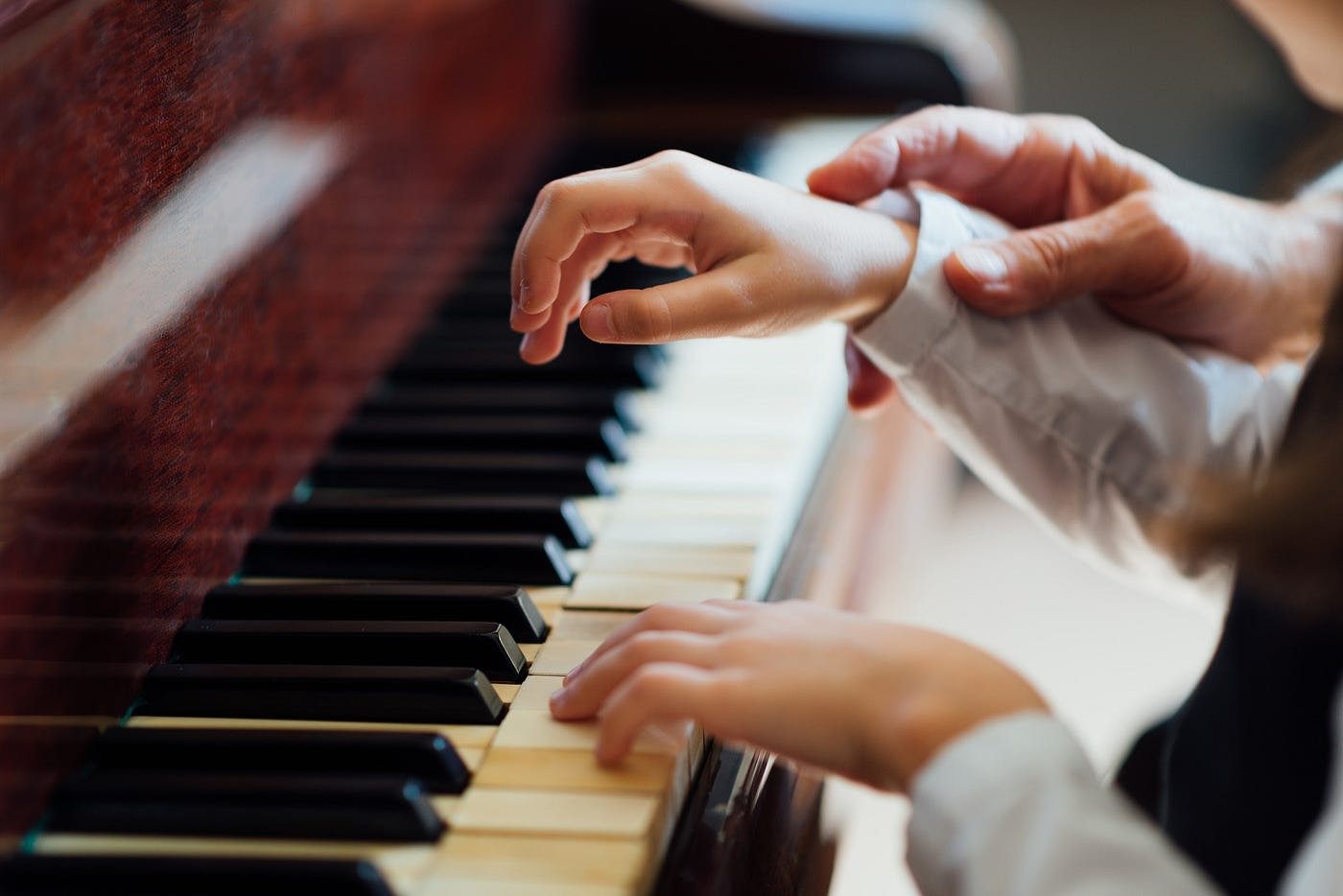

Piano
Why Learn To Play The Piano
Published: February 9, 2024
Discover the joy of playing the piano with our expert guidance. Learn piano techniques and master the art of music with our comprehensive lessons. Start your musical journey today!
(Many of the links in this article redirect to a specific reviewed product. Your purchase of these products through affiliate links helps to generate commission for AudioLover.com, at no extra cost. Learn more)
Table of Contents
Introduction
Learning to play the piano is a rewarding and enriching experience that offers a wide array of benefits. Whether you're a complete beginner or an experienced musician, the piano provides a platform for personal growth, creativity, and self-expression. The ability to produce beautiful melodies and harmonies through the piano keys is a skill that brings joy to both the player and the audience. In this article, we will explore the numerous advantages of learning to play the piano, ranging from cognitive and emotional benefits to physical and social advantages.
The piano is a versatile instrument that has stood the test of time, captivating audiences and musicians for centuries. Its timeless appeal lies in its ability to convey a wide range of emotions and musical styles, making it a staple in classical, jazz, pop, and many other genres. Whether you aspire to perform on stage, compose your own music, or simply play for your own pleasure, the piano offers a wealth of opportunities for personal and artistic fulfillment.
As we delve into the benefits of learning to play the piano, it's important to recognize the profound impact that music can have on our lives. From enhancing cognitive abilities to providing an outlet for emotional expression, the piano offers a holistic approach to personal development. Whether you're a child, an adult, or a senior, the piano has something unique to offer, making it a timeless and invaluable pursuit for individuals of all ages and backgrounds.
In the following sections, we will explore the multifaceted benefits of learning to play the piano, shedding light on the cognitive, emotional, physical, and social advantages that come with mastering this timeless instrument. Whether you're considering taking up the piano or looking to gain a deeper appreciation for its impact, this article will provide insight into the transformative power of music and the piano's enduring appeal.
Benefits of Learning to Play the Piano
Learning to play the piano offers a myriad of benefits that extend far beyond the ability to create beautiful music. Whether you’re a beginner or an experienced pianist, the advantages of mastering this instrument are both profound and diverse. From cognitive and emotional benefits to physical and social advantages, the piano has the power to enrich every aspect of your life.
Let’s explore the various dimensions of the benefits of learning to play the piano:
Cognitive Benefits
Playing the piano engages the mind in a unique and complex manner, stimulating cognitive functions such as memory, attention, and spatial-temporal skills. The process of reading musical notes, coordinating both hands, and interpreting rhythm and dynamics fosters neural connections and enhances overall brain function. Studies have shown that learning to play the piano can improve cognitive abilities, particularly in children, by enhancing their spatial-temporal skills, which are crucial for mathematical and scientific reasoning.
Emotional Benefits
The piano serves as a powerful medium for emotional expression and self-reflection. Through the evocative tones and expressive nuances of the piano, players can convey a wide range of emotions, from joy and exuberance to introspection and melancholy. The act of playing the piano can be deeply cathartic, providing a means to channel and process emotions in a creative and constructive manner. Moreover, the sense of accomplishment and satisfaction derived from mastering a challenging piece can significantly boost self-esteem and emotional well-being.
Physical Benefits
Playing the piano requires a high degree of physical coordination and dexterity, particularly in the fingers and hands. Regular practice can improve fine motor skills and hand-eye coordination, benefiting individuals of all ages. Additionally, maintaining proper posture and hand positioning while playing the piano promotes overall physical health and helps prevent musculoskeletal issues. The tactile experience of pressing the keys and feeling the resonance of the instrument also contributes to sensory stimulation and kinesthetic awareness.
Social Benefits
The piano has a unique ability to bring people together through music. Whether it’s performing in a group setting, accompanying other musicians, or simply playing for friends and family, the piano fosters social connections and shared experiences. Collaborative piano playing encourages teamwork, communication, and mutual appreciation for music, creating a sense of community and camaraderie among musicians. Furthermore, the piano provides a platform for individuals to connect with others through the universal language of music, transcending cultural and linguistic barriers.
These are just a few of the many benefits that come with learning to play the piano. Whether you’re seeking intellectual stimulation, emotional expression, physical coordination, or social interaction, the piano offers a holistic and enriching experience that extends far beyond the confines of the instrument itself.
Cognitive Benefits
Learning to play the piano offers a wealth of cognitive benefits that have a profound impact on brain function and development. The intricate and multifaceted nature of piano playing engages various cognitive processes, leading to improved mental acuity and enhanced neurological capabilities.
Here are some of the key cognitive benefits of learning to play the piano:
Enhanced Memory
One of the most notable cognitive benefits of piano playing is the enhancement of memory function. As pianists learn to read musical notation, interpret rhythm, and memorize complex pieces, they are constantly exercising their memory skills. This continual mental stimulation can lead to improvements in both short-term and long-term memory, which can have far-reaching benefits in academic, professional, and everyday life.
Improved Focus and Attention
Playing the piano requires a high level of concentration and attention to detail. Pianists must focus on reading the musical score, coordinating both hands, and maintaining consistent tempo and dynamics. This sustained mental engagement can enhance overall focus and attention, leading to improved concentration and multitasking abilities in various aspects of life.
Development of Spatial-Temporal Skills
Research has shown that learning to play the piano can have a positive impact on the development of spatial-temporal skills, which are crucial for mathematical and scientific reasoning. The process of reading musical notation and translating it into physical movements on the keyboard engages spatial-temporal reasoning, leading to improvements in abstract thinking, problem-solving, and pattern recognition.
Stimulated Neural Connections
Playing the piano stimulates the brain to form new neural connections and pathways, particularly in areas associated with auditory processing, motor coordination, and emotional regulation. This neural plasticity, or the brain’s ability to reorganize and adapt, is essential for learning and skill acquisition. As individuals practice and master piano playing, they strengthen these neural connections, leading to enhanced cognitive function and overall brain health.
These cognitive benefits underscore the profound impact that learning to play the piano can have on brain development and cognitive abilities. Whether you’re a beginner or an experienced pianist, the mental stimulation and cognitive challenges posed by piano playing offer a unique and rewarding avenue for enhancing brain function and intellectual capabilities.
Emotional Benefits
Beyond the realm of cognitive development, learning to play the piano offers a myriad of emotional benefits that contribute to overall well-being and self-expression. The act of creating music and engaging with the expressive capabilities of the piano can have a profound impact on one’s emotional state and psychological resilience.
Let’s delve into the emotional benefits of playing the piano:
Emotional Expression and Catharsis
The piano serves as a powerful medium for emotional expression, allowing players to convey a wide range of feelings and moods through their music. Whether it’s the exuberant joy of a lively piece or the introspective melancholy of a soulful melody, the piano provides a means to channel and express emotions in a deeply personal and cathartic manner. This outlet for emotional expression can be particularly beneficial during times of stress, anxiety, or emotional turmoil, providing a creative and constructive way to process and communicate feelings.
Enhanced Self-Esteem and Confidence
Mastery of the piano and the ability to perform complex pieces can significantly boost self-esteem and confidence. The sense of accomplishment derived from overcoming challenges, mastering new techniques, and captivating an audience through music can instill a deep sense of self-worth and personal achievement. This heightened self-esteem can have a positive ripple effect, contributing to greater confidence in other areas of life and fostering a resilient and empowered mindset.
Stress Reduction and Relaxation
Playing the piano can serve as a form of stress relief and relaxation, offering a therapeutic escape from the demands of daily life. The act of immersing oneself in the music, focusing on the interplay of melody and harmony, and surrendering to the rhythmic flow of the keys can create a meditative and calming experience. This meditative state promotes relaxation, reduces stress levels, and fosters a sense of inner peace and tranquility.
Connection and Empathy
Music, as a universal language, has the power to connect people on an emotional level. Through the piano, musicians can evoke empathy, understanding, and shared emotions, creating a profound sense of connection with listeners and fellow musicians. This ability to elicit and empathize with emotions through music fosters a deep sense of human connection and emotional resonance, enriching both the player and the audience.
These emotional benefits highlight the transformative power of the piano as a vehicle for emotional expression, self-discovery, and resilience. Whether you’re seeking an outlet for emotional catharsis, a boost in self-confidence, or a source of relaxation, the piano offers a rich tapestry of emotional rewards that resonate deeply with the human experience.
Physical Benefits
Playing the piano involves a range of physical movements and coordination, offering numerous benefits for physical health and well-being. From fine motor skills to overall posture, the act of playing the piano engages the body in a way that promotes physical dexterity, coordination, and sensory awareness.
Improved Fine Motor Skills
The intricate finger movements and hand-eye coordination required to play the piano contribute to the development and refinement of fine motor skills. As pianists navigate the keyboard, they engage in precise and coordinated movements that strengthen dexterity and control in the fingers and hands. This enhanced fine motor control can have far-reaching benefits in various aspects of daily life, from writing and typing to engaging in intricate manual tasks.
Enhanced Hand-Eye Coordination
Playing the piano demands a high level of hand-eye coordination, as pianists must read musical notation, interpret rhythm, and translate visual cues into precise physical movements on the keyboard. This continual coordination between visual and motor skills enhances overall hand-eye coordination, leading to improved dexterity and agility in performing complex tasks and activities.
Promotion of Proper Posture
Maintaining proper posture while playing the piano is essential for both performance and physical health. Pianists learn to sit with an upright and balanced posture, engaging core muscles and promoting spinal alignment. This focus on proper posture not only contributes to a polished and poised performance but also helps prevent musculoskeletal issues and promotes overall spinal health.
Sensory Stimulation and Kinesthetic Awareness
The tactile experience of pressing the piano keys and feeling the resonance of the instrument provides sensory stimulation and enhances kinesthetic awareness. Pianists develop a heightened sense of touch, pressure, and proprioception, allowing them to finely regulate the dynamics and expression of their playing. This sensory awareness contributes to a deeper connection with the instrument and promotes overall kinesthetic sensitivity.
These physical benefits underscore the holistic nature of piano playing, engaging both the mind and the body in a harmonious interplay. Whether you’re seeking to improve fine motor skills, enhance hand-eye coordination, or promote overall physical well-being, the piano offers a multifaceted approach to physical development and sensory awareness.
Social Benefits
Learning to play the piano extends beyond individual enrichment, offering a range of social benefits that foster connections, collaboration, and shared experiences. The piano serves as a vehicle for social interaction, bringing people together through music and creating a sense of community and camaraderie among musicians.
Collaborative Performance Opportunities
Playing the piano provides numerous opportunities for collaborative performance, whether it’s accompanying other musicians, participating in ensemble playing, or engaging in group recitals. Collaborative piano playing encourages teamwork, communication, and mutual appreciation for music, creating a sense of camaraderie and shared accomplishment among musicians. This collaborative aspect of piano playing fosters social connections and encourages individuals to work together towards a common artistic goal.
Shared Musical Experiences
The piano offers a platform for sharing musical experiences with friends, family, and fellow musicians. Whether it’s playing for an intimate gathering, entertaining guests at social events, or simply sharing music with loved ones, the piano creates opportunities for meaningful and memorable interactions. Music has the unique ability to evoke emotions, spark conversations, and create lasting connections, enriching social interactions and strengthening relationships.
Universal Language of Music
Music, as a universal language, transcends cultural and linguistic barriers, providing a common ground for communication and understanding. The piano allows individuals to connect with others through the shared experience of music, fostering a sense of empathy, connection, and cultural exchange. Whether it’s through performing, composing, or simply appreciating music, the piano serves as a bridge that unites people from diverse backgrounds and fosters a sense of inclusivity and mutual appreciation.
Community Engagement and Outreach
Engaging with the piano can extend into the community through outreach programs, music education initiatives, and collaborative projects. Whether it’s volunteering to perform at local events, teaching piano to aspiring musicians, or participating in community music ensembles, the piano provides avenues for community engagement and outreach. This involvement in community-based musical activities not only enriches the social fabric of the community but also provides a sense of purpose and fulfillment for pianists.
These social benefits highlight the piano’s capacity to create connections, bridge cultural divides, and enrich the social fabric of communities. Whether you’re seeking collaborative performance opportunities, shared musical experiences, or avenues for community engagement, the piano offers a rich tapestry of social rewards that extend far beyond individual practice and performance.
Opportunities for Creativity and Self-Expression
Learning to play the piano provides a fertile ground for creativity and self-expression, offering individuals the opportunity to explore and articulate their artistic inclinations through music. The piano serves as a canvas for musical innovation, allowing players to infuse their personality, emotions, and imagination into their performances and compositions.
Artistic Interpretation and Musical Expression
Playing the piano enables individuals to express their unique artistic interpretation of musical pieces, infusing each performance with their personal flair and emotional depth. The nuances of touch, dynamics, and phrasing allow pianists to convey a wide range of emotions and moods, creating a deeply personal and evocative musical experience. This artistic freedom fosters a sense of individuality and creativity, empowering pianists to imbue their performances with their distinctive voice and musical identity.
Composition and Arrangement
The piano offers a platform for composition and arrangement, allowing musicians to create and interpret music in their own unique style. Whether it’s composing original pieces, arranging existing compositions, or improvising on the keyboard, the piano provides a space for musical experimentation and innovation. This creative outlet allows individuals to explore their compositional prowess, experiment with musical ideas, and contribute to the rich tapestry of musical repertoire.
Exploration of Musical Styles and Genres
The piano’s versatility allows for exploration of a wide array of musical styles and genres, from classical and jazz to contemporary and experimental music. Pianists have the freedom to delve into diverse musical traditions, techniques, and aesthetics, broadening their artistic horizons and expanding their musical palette. This exploration of musical diversity nurtures a spirit of open-mindedness, curiosity, and artistic growth, enabling pianists to cultivate a rich and diverse musical repertoire.
Personalized Interpretation and Artistic Development
Playing the piano encourages personalized interpretation and artistic development, empowering individuals to shape their musical journey according to their unique aspirations and inclinations. Whether it’s honing a specific technical skill, delving into a particular musical era, or exploring innovative performance practices, the piano provides a platform for personalized growth and artistic evolution. This individualized approach to artistic development allows pianists to carve their own path, fostering a sense of autonomy and self-discovery in their musical pursuits.
These opportunities for creativity and self-expression underscore the piano’s role as a catalyst for artistic exploration and innovation. Whether you’re seeking to express your unique musical voice, delve into composition and arrangement, or explore diverse musical styles, the piano offers a boundless realm of creative possibilities that inspire and empower musicians on their artistic journey.
Stress Relief
Amid the demands of modern life, the piano serves as a therapeutic outlet for stress relief, offering individuals a respite from the pressures of daily routines and the complexities of the external world. The act of playing the piano can be deeply calming and meditative, providing a sanctuary for relaxation, emotional release, and mental rejuvenation.
Musical Meditation and Mindfulness
Playing the piano can serve as a form of musical meditation, allowing individuals to immerse themselves in the rhythmic flow of the keys and the expressive nuances of the music. This meditative state promotes mindfulness, grounding individuals in the present moment and providing a reprieve from racing thoughts and mental clutter. The focused attention required for piano playing encourages a state of deep concentration and relaxation, fostering a sense of inner calm and mental clarity.
Emotional Catharsis and Release
The piano provides a channel for emotional catharsis and release, allowing individuals to channel their innermost feelings and emotions through music. Whether it’s the exuberant energy of an uplifting piece or the introspective melancholy of a soulful melody, the piano offers a means to express and process emotions in a constructive and therapeutic manner. This emotional release can serve as a cathartic release, alleviating pent-up stress and fostering a sense of emotional balance and well-being.
Creative Escapism and Self-Care
Engaging with the piano can offer a form of creative escapism, transporting individuals into a world of musical expression and artistic immersion. The act of playing the piano provides an opportunity for self-care and rejuvenation, allowing individuals to detach from external stressors and immerse themselves in the soothing sounds and expressive possibilities of the instrument. This creative escapism fosters a sense of renewal and rejuvenation, providing a much-needed break from the demands of daily life.
Physical Relaxation and Tension Release
The physical act of playing the piano can promote relaxation and tension release, offering a therapeutic outlet for physical stress and muscular tension. The rhythmic movements of the fingers and the tactile experience of pressing the keys can provide a soothing and calming sensation, alleviating physical strain and promoting overall relaxation. This physical release contributes to a sense of bodily comfort and ease, complementing the mental and emotional benefits of piano playing.
These stress relief benefits underscore the piano’s capacity to provide a holistic and nurturing space for emotional release, mental rejuvenation, and physical relaxation. Whether you’re seeking a moment of musical mindfulness, a channel for emotional expression, or a creative escape from stress, the piano offers a sanctuary for holistic well-being and stress relief.
Conclusion
The piano stands as a timeless and versatile instrument that offers a wealth of benefits encompassing cognitive, emotional, physical, and social dimensions. From fostering cognitive development and emotional expression to promoting physical dexterity and social connection, the act of learning and playing the piano holds transformative potential for individuals of all ages and backgrounds.
Through the cognitive benefits of enhanced memory, focus, and spatial-temporal skills, the piano serves as a powerful catalyst for intellectual growth and neurological stimulation. The emotional benefits of self-expression, catharsis, and stress relief underscore the piano’s capacity to nurture emotional well-being and resilience. In terms of physical benefits, the piano promotes fine motor skills, hand-eye coordination, and sensory awareness, contributing to overall physical health and dexterity.
Furthermore, the social benefits of collaborative performance, shared musical experiences, and community engagement highlight the piano’s role in fostering connections and camaraderie among musicians and communities. The opportunities for creativity and self-expression offered by the piano provide a platform for artistic innovation, personalized development, and musical exploration.
As a sanctuary for stress relief and relaxation, the piano offers a therapeutic escape from the pressures of daily life, promoting mindfulness, emotional release, and physical rejuvenation. Whether it’s the intellectual stimulation, emotional resonance, physical engagement, or social connection, the piano offers a multifaceted and enriching experience that transcends the boundaries of mere musical practice and performance.
Ultimately, the piano stands as a beacon of creativity, expression, and holistic well-being, inviting individuals to embark on a journey of self-discovery, artistic fulfillment, and personal growth. Whether you’re a novice exploring the first notes or a seasoned pianist honing your craft, the piano’s enduring allure and multifaceted benefits continue to inspire and elevate the lives of musicians and enthusiasts across the globe.

